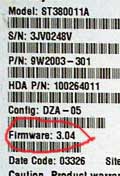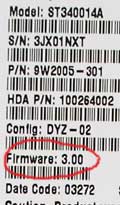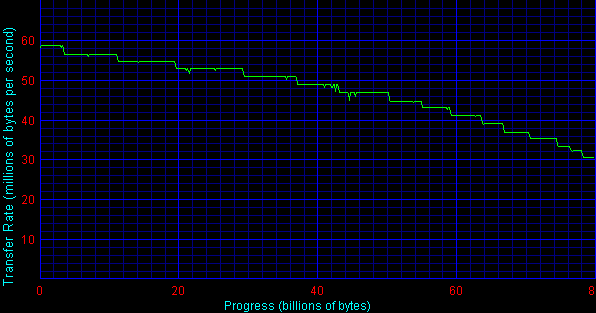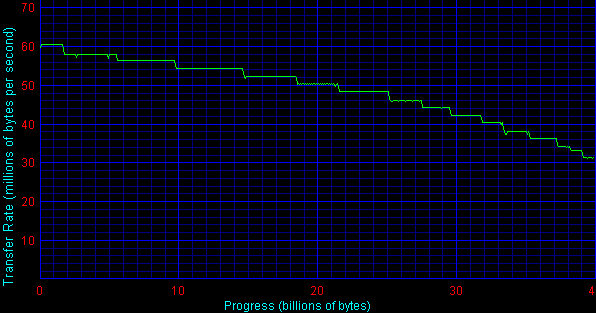As I promised, I tested a 80GB drive from the Seagate Barracuda 7200.7 line
- ST380011A. It was very interesting to see whether the results shown by ST340014A
are on account of a certain sample or they reflect the real performance of this
line.
The drives look very similar to each other and differ only in the small
but important figures.

|

|
| ST380011A |
ST340014A |
Zeros in names, whether of drivers, BIOS or firmware, were always confusing
for me. As you can see, now this shortcoming is dealt away with. Let's
see whether the updated firmware has influenced the performance.
Tests
The testbed is standard.
-
Mainboard - Iwill WO2-R (BIOS ver. 6.00PGN);
-
Processor - Intel Pentium III 800EB;
-
Memory - 256 MB PC133 SDRAM;
-
System disc - IBM DTLA 307015;
-
OS - Windows 2000 Professional SP2.
The test suite is standard as well.
-
Ziff-Davis WinBench 99;
-
HDTach 2.61;
-
Intel IOMeter.
Ziff-Davis WinBench 99 / HDTach 2.61
The first unexpected thing is that the maximum linear read speed has fallen
down.

ST380011A

ST340014A
The diagrams prove that. It's not that terrible, but makes me feel pessimistic.
The average read speed is, therefore, lower as well; however, the average write
speed is now a bit higher.
Unfortunately, that's not a comfort. The performance hasn't changed
for better... By the way, one of the readers (who signed anton) provided
us with curious results of three ST340014A drives obtained with HDTach
2.61 Random Access Time Benchmark. The drives demonstrated 14.4, 14.8 and
15.2 ms on average respectively. Well, the sample I had wasn't the worst.
Certainly, we can test Barracudas endlessly but does it make sense?
After the previous review I was asked whether the access time obtained in the
tests could depend on the Acoustic Management settings. I'm sorry I disregarded
that. According to Seagate Automatic Acoustic Management Utility V1.01 and IBM
Feature Tool V1.10, Seagate Barracuda 7200.7 drives DO NOT SUPPORT the asoucstic
management mode.
The Ziff-Davis WinMarks demonstrate parity.
Intel IOMeter
Now the most interesting part. Although the performance would hardly improve
with the access time being the same, something must have become better in the
new firmware!
No comments...
Conclusion
The problem with Seagate Barracuda 7200.7 drives is not open anymore for me.
At least, until the models of an 8MB buffer come onto the scene.
Write a comment below. No registration needed!


